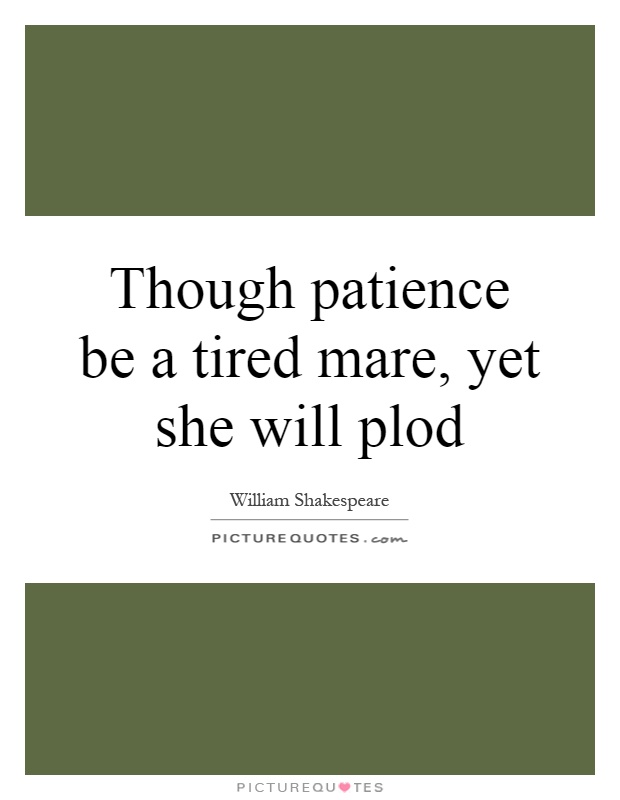Though patience be a tired mare, yet she will plod

Though patience be a tired mare, yet she will plod
William Shakespeare, the renowned playwright and poet, often explored the theme of patience in his works. One of his famous quotes, “Though patience be a tired mare, yet she will plod,” reflects the idea that patience may be difficult and tiresome, but it ultimately leads to success.In many of Shakespeare’s plays, characters are tested by challenging circumstances that require them to exercise patience. Whether it is waiting for love to be reciprocated, seeking revenge on enemies, or enduring hardships, Shakespeare’s characters often find themselves in situations where patience is necessary. For example, in “Romeo and Juliet,” Romeo must wait for Juliet’s family to accept their love before they can be together. In “Hamlet,” the titular character must bide his time and plan his revenge carefully before taking action against his uncle, who murdered his father.
Shakespeare’s quote suggests that patience is like a tired mare, worn out from the journey but still moving forward. It acknowledges the difficulty of being patient, especially when faced with obstacles and setbacks. However, it also emphasizes the importance of perseverance and determination in achieving one’s goals. Just as a tired horse will continue to plod along until it reaches its destination, so too must we continue to be patient and persistent in our pursuits.
Shakespeare’s own life and career are a testament to the power of patience. Despite facing numerous challenges and setbacks throughout his life, including the closure of theaters due to the plague and financial difficulties, Shakespeare continued to write and produce plays that are still celebrated today. His enduring legacy is a testament to the rewards of patience and perseverance.












 Friendship Quotes
Friendship Quotes Love Quotes
Love Quotes Life Quotes
Life Quotes Funny Quotes
Funny Quotes Motivational Quotes
Motivational Quotes Inspirational Quotes
Inspirational Quotes